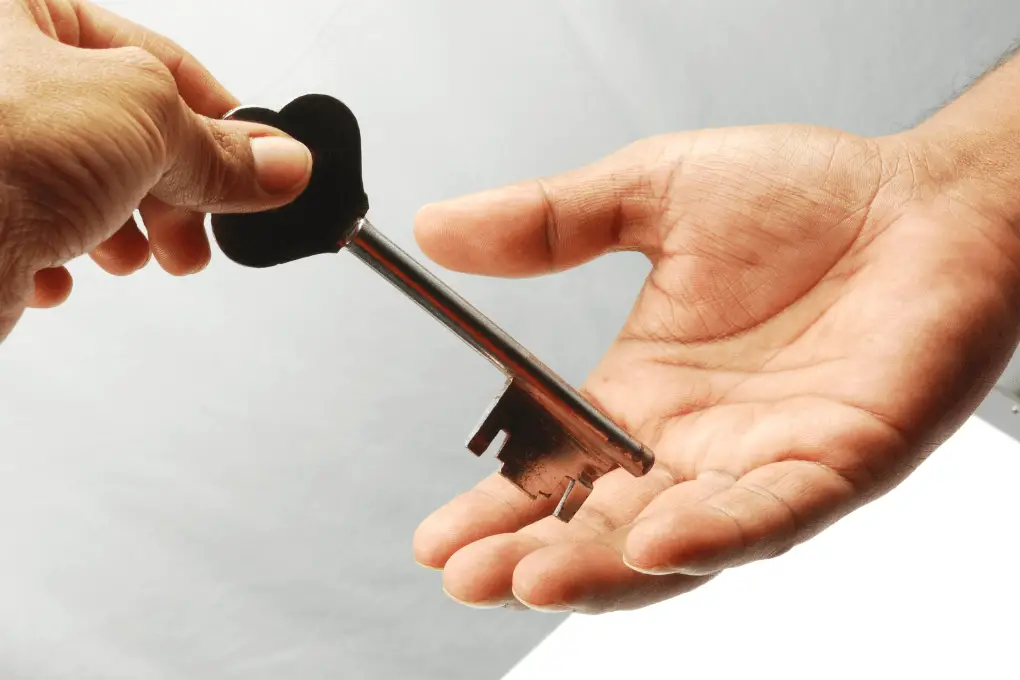What was the last time you felt stuck with a project that you’re working on?
You’ve been quite busy with a million other things, but this one particular project remains unfinished. Days, weeks, months, or even years pass… and now you’re thinking about how to forgive yourself for wasting time!
As a creative person who is always filled with big ideas, there may be times when your projects don’t always go smoothly or as initially planned. Deadlines come and go, but your progress is slow. Or worse, you might haven’t taken action yet!
However, you will need to overcome this “hurdle” so that you can eventually move forward.
The purpose of this article is to discuss some common reasons why we tend to waste time, as well as the importance of forgiving ourselves. We will also be sharing some practical tips on time management, and of course, ways on how to forgive yourself for wasting time.
[divider width=”full”]
Recommended Reading:
- Characteristics of a Know-it-all Person and How to Deal with Them
- 13 “New Month, New Goals” Tips to Make the Rest of This Year Your Best Year Yet
- 9 Surprising Advantages of Creativity in Business
[divider width=”full”]
Top Reasons Why We Waste Time

It is possible for each one of us to have different reasons for wasting time, although listed below are a few that many people have encountered at some point in their lives:
1. Lack of organization
Let’s face it. A lack of organization leads to wasted time. When all of our papers and projects are in disarray, we would have difficulty finding – much less finishing – our tasks. Likewise, when we don’t have a notebook, calendar, or other tools for planning our projects, then it’s bound to take “a while” before we actually start doing them!
2. Lack of prioritization
Perhaps you’ve already made a “to do” list. Now what?
Well, it’s time to set your priorities! You certainly can’t do everything all at once, so you’ll need to identify which projects or activities go first. This involves focusing on the most important and urgent tasks first before getting around to the not-so-important and not-so-urgent ones.
>>> Boost your efficiency. Check this out. <<<
3. Procrastination
We’ve all been guilty of this sometimes, haven’t we?
We know that we should be doing something important today, yet we put it off, thinking that we can always do it “tomorrow,” or the next day, or the next… and so on until we end up having to “cram” everything! As a result, our final output might not be as high quality or as good as we’d originally planned.
4. Excessive worrying

A little amount of worrying wouldn’t hurt, but too much worrying is just plain unnecessary, not to mention a total waste of time.
Instead of worrying, do something that could help solve the problem at hand. If you are concerned about something that is beyond your control, just do your best and move on to other things, than be consumed by excessive amounts of worrying!
5. Social media and personal emails
Let’s be honest. Social media platforms are our biggest time wasters.
We spend so much time on social media these days – reading posts, sharing photos, accumulating “likes,” and watching numerous videos that may or may not be related to our work. The same goes for emails, many of which may not be essential or urgent.
Perhaps checking social media and email notifications a few times a day is okay, but when these become distractions instead of occasional activities, then we should seriously consider limiting them. Remember, there’s more to life than being glued to our smartphones and computers 24/7!
Reasons Why You Need to Forgive Yourself
Let us imagine that you are currently having a hard time with self-forgiveness. You realize that you have wasted so much time, and you are filled with feelings of guilt, worry, and despair. It makes you want to give up, too!
But before you make any drastic decisions, first consider the following reasons why you need to forgive yourself:
1. You need to forgive and embrace your uniqueness.
Nobody is perfect, and yes, that includes you. Keep in mind that you have positive as well as negative traits. These traits are what makes you… well, you.
Inevitably, you will make mistakes from time to time, and that’s all right. Humans as we are, we all make a mistake or two from time to time. Besides, life isn’t just all about perfection. In addition, it’s about learning from failure and making progress towards success. So don’t beat yourself up over past failures. Learn from them and try again.
2. You need to forgive so that you can move forward.

Visualize yourself carrying a heavy sack filled with stones. Each stone represents a time when you were tough on yourself for making a mistake.
If you don’t forgive yourself, the bag would only get heavier and heavier – thus making it hard to go on. But if you decide to forgive yourself, the bag would become lighter and lighter… so you can finally move forward. Imagine how life would become much easier it would be to carry around such a light load!
3. You need to forgive yourself so that you can forgive others.

If you cannot forgive yourself, then how can you genuinely forgive others?
The truth is: guilt doesn’t always help. Guilt can paralyze people from doing worthwhile. It would linger even more if you don’t do anything that could lead to forgiveness. It might even become a bad habit!
If you want to truly change things, then you must start by forgiving yourself. Afterward, you can begin to work on other areas of your life where you may still harbor resentment toward another person. This way, you’ll not only improve your situation, but you’ll also positively impact the lives of many others.
16 Tips on How to Forgive Yourself for Wasting Time (and Finally Move Forward)
So far, we’ve talked about the importance of forgiving oneself. Let us now discuss how to forgive yourself for wasting time so that you can definitely “move forward.”
1. Take responsibility for your actions (or inaction).

I get it: you’ve made some mistakes and wasted a considerable amount of time. We all do.
The important thing now is to accept what you did (or didn’t do), work on eliminating the bad habit, and improve your behavior overall.
It’s not easy, but once you put your mind to it, you can start eliminating shame and improving your approach to life.
So now is your turn to admit your mistakes, learn from them and take full responsibility for them. Remember that everybody makes mistakes, including me. And that’s all right.
Now it’s time to let go and move on.
2. View yourself and your actions objectively.
As humans, we tend to be self-critical; we tend to beat ourselves up when we make mistakes. We even go as far as comparing ourselves with more disciplined people!
Now try to imagine if it was another person who made the same mistake. You wouldn’t be too hard on this person, would you? You would be more patient, understanding, and forgiving.
If you can be objective when dealing with other people’s mistakes, then you should also be objective when examining yourself and your actions.
Remember, you have no control over external factors. However, you DO have complete control over how YOU react to situations. So why not use that power wisely? Why not choose to be compassionate towards yourself instead of being critical?
3. Make the deliberate decision to “let go.”

The road to self-forgiveness starts with a small but significant step: deciding to let go. There simply is no point in dwelling on the past and prolonging negative feelings. Instead, focus on moving ahead and making positive changes.
There’s no need to feel guilty anymore. Just remember that there will always be new opportunities coming along, and you shouldn’t waste any of those chances.
When you finally decide to let it go – your past mistakes, guilty feelings, negative thoughts, everything – you are on your way to moving on with confidence!
4. If necessary, seek forgiveness from others.
Along the way, you may have caused pain or inconvenience to other people because of your actions. Consequently, your relationship with them may have been strained or negatively affected.
If these people are important to you, and you would like to reconnect or improve your relationship with them, go ahead and make amends in person. By seeking forgiveness from others, your road to self-forgiveness will become brighter.
5. Open your mind to different perspectives.

You may have started a project with a specific plan in mind. You’ve set deadlines and target milestones along the way. Unfortunately, you haven’t been able to follow your original intent, and that’s okay.
Instead of being too hard on yourself, maybe it’s time to shift your perspective, modify your plan, or simply adjust time frames. This could mean changing some aspects of your initial project or perhaps starting something completely new. It may not be what you originally had in mind, but it’s still a plan worth pursuing!
[divider width=”full”]
Recommended Reading:
- Motivation vs Inspiration: 11 Easy Ways to Tell Them Apart
- How to Get Better Deals: The 15 Essential Rules for Negotiation
- Battle of the Brains: Street Smarts Vs. Book Smarts
[divider width=”full”]
6. Set short-term and long-term goals.
Many of us begin our projects with a long-term goal and almost immediately make a sprint. We are so excited and eager to get started that sometimes when things go wrong, we get discouraged and start thinking that it all suddenly seems impossible.
But the truth is, feelings of discouragement may quickly come from our perception of things. Maybe, our goal just seems too far-fetched that we throw away the towel too early in the game.
But it doesn’t have to be that way. No matter how far-fetched a goal seems to be, you can make it more achievable and realistic by setting short-term goals. Think of these short-term goals as your stepping stones to achieving your ultimate goal. They should help you stay motivated and focused throughout the process.
So take baby steps every single day until you reach your ultimate goal. And once you do, celebrate!
>>> Learn the art of setting SMART goals here. <<<
7. Focus your attention on one task at a time.

You might have heard about “multitasking,” which involves doing several things at the same time. Well, our advice is NOT to do it.
Avoid multitasking at all costs! It only leads to stress and frustration.
Don’t try to accomplish too many things at once. When you finish that particular job, move on to another one. Don’t worry if this means taking longer than usual; instead, think of it as an investment towards reaching your goals faster.
8. Create deadlines and stick to them.
Earlier, we mentioned the importance of setting short-term and long-term goals. This time around, let’s talk about deadlines.
First things first, when setting time frames, make sure that it’s reasonable. If you’re working on a project that normally takes three months to finish, don’t expect to complete everything within two weeks. Instead, try breaking down each part into smaller tasks, and give yourself enough time to work through those parts before moving on to the next ones.
Second, create deadlines for yourself. Make sure they are specific, measurable, attainable, realistic, and time-bound (SMART). That way, you’ll know exactly how further away you are from your goals.
Having a specific deadline can also help motivate and remind you to stick to a project. Without a target date, you could easily get distracted, resulting in loss of focus and eventually your interest in a project.
9. Apply the “Pomodoro” technique.

You may have heard of this technique, which is a time-management method created by Francesco Cirillo. To do this, all you need is a Pomodoro timer and a list of things that you need to accomplish.
Here’s how it works:
Each “Pomodoro” equals 25 minutes of focused, uninterrupted work, followed by a 5-minute break. The idea is to divide long hours of work into several intervals, with short breaks in-between. Breaks are important, as well as dividing our work into shorter, more manageable “chunks.”
The Pomodoro Technique is beneficial to people who tend to procrastinate or lose motivation during their projects. By using this technique, you will find yourself getting better results because you won’t feel overwhelmed anymore. You’ll also enjoy the feeling of accomplishment after completing a Pomodoro session.
10. Be mindful.
Being mindful means becoming more aware of what’s going on around you. Once you do, you will start to notice other people’s expressions more. Perhaps you have a friend who looks sad and needs cheering up, or perhaps you have a neighbor who is feeling lonely and could use some company. Go ahead and spend some time with them!
Mindfulness also means being more aware of your own thoughts and feelings. What are your fears, worries, and concerns? Try slowing down and just think about these things. By being mindful of your “external” and “internal” circumstances, you begin focusing on more important things – making each day more meaningful and productive.
11. Practice meditation.

In relation to being “mindful,” as stated earlier, consider practicing meditation. Your form of meditation can be a simple breathing exercise or closing your eyes and listening to some relaxing music. The idea is to “let go” for a few minutes (or longer) and simply relax.
If you have identified counter-productive habits, try to replace them with meditation so that you become less reactive and more present. Meditation helps us slow down and appreciate life more. It allows us to see life clearly without judgment and enables us to reflect upon ourselves and our lives.
12. Focus on the lessons.
Any teacher can tell you that “making mistakes is part of the learning process.” In fact, it’s scarce for a person to get things “right” or perfect the first time they try!
You will make mistakes, and it’s totally okay. What really matters is that you learn the lesson!
13. Start a journal.

Sometimes, putting your thoughts into writing can help overcome hurdles. Grab a notebook and start writing. Just let it all out: your thoughts, feelings, plans, worries… everything!
Later, when you look back at what you’ve written, you will come up with realizations and possible solutions.
14. Develop a positive self-image.
You’ve made mistakes. You’ve wasted time. You might have been disappointed in yourself. However, you shouldn’t let your past shortcomings define you.
Instead of dwelling on past negativity, why not focus on positive things today? You are in control. You can take charge and make plans. You are very much capable and responsible. Affirm your positive traits, and just keep going forward!
15. Connect with others.

Having a support system is essential. This includes having family members, friends, and co-workers with whom you can connect from time to time.
By establishing and nurturing these relationships, you will have an endless source of motivation, inspiration, and strength. There is a time to be alone and a time to be with others. Always remember that!
16. Be forgiving (to others and yourself).
Finally, be forgiving. We know this is much easier said than done, but we must learn the art of forgiveness. We need to forgive ourselves for past mistakes and other “baggage.” We need to forgive others so that we can move on.
[divider width=”full”]
Recommended Reading:
- 6 Traits of a Shallow Person & How You Can Deal with One
- Growth Mindset vs Fixed Mindset: Your Questions Answered
- How to Have a Productive Day: 18 Tips to Help You Make the Most of Your Day
[divider width=”full”]
The Bottom Line
At the end of the day, the important thing is to be forgiving and compassionate – to yourself and others. Making mistakes is an inevitable part of the learning experience, after all.
By taking note of the abovementioned tips and taking the necessary steps regarding time management and self-forgiveness, you can begin to move forward with a brighter and more positive attitude!
I hope you learned from our article how to manage your time effectively. If there’s anything else you would like us to cover about managing your time or how to forgive yourself for wasting time, please feel free to leave a comment below.

Disclaimer:
This post may contain affiliate links. Meaning, if you click on one of the product links, I will earn a small commission at no cost to you. Thank you for supporting Creativity Mesh.






Really motivated me….And I believe that this is gonna make a difference in my life…